On This Page
Best CPAP Machines of 2025: Expert Picks for Sleep Apnea Relief
Our Top Picks
-
Best Overall CPAP Machine
ResMed AirSense 11 AutoSet CPAP Machine -
Best CPAP Machine for New CPAP Users
ResMed AirSense 11 Autoset Basics Bundle with Full-Face Mask -
Best Value CPAP Machine
ResMed AirSense 10 AutoSet Connected with HumidAir and ClimateLineAir -
Best BiPAP Machine
Luna G3 BiPAP 25A Machine -
Best Travel CPAP Machine
ResMed AirMini AutoSet Travel CPAP Machine -
Best CPAP Machine Alternative
American Sleep Dentistry Oral Appliance
Best Overall CPAP Machine
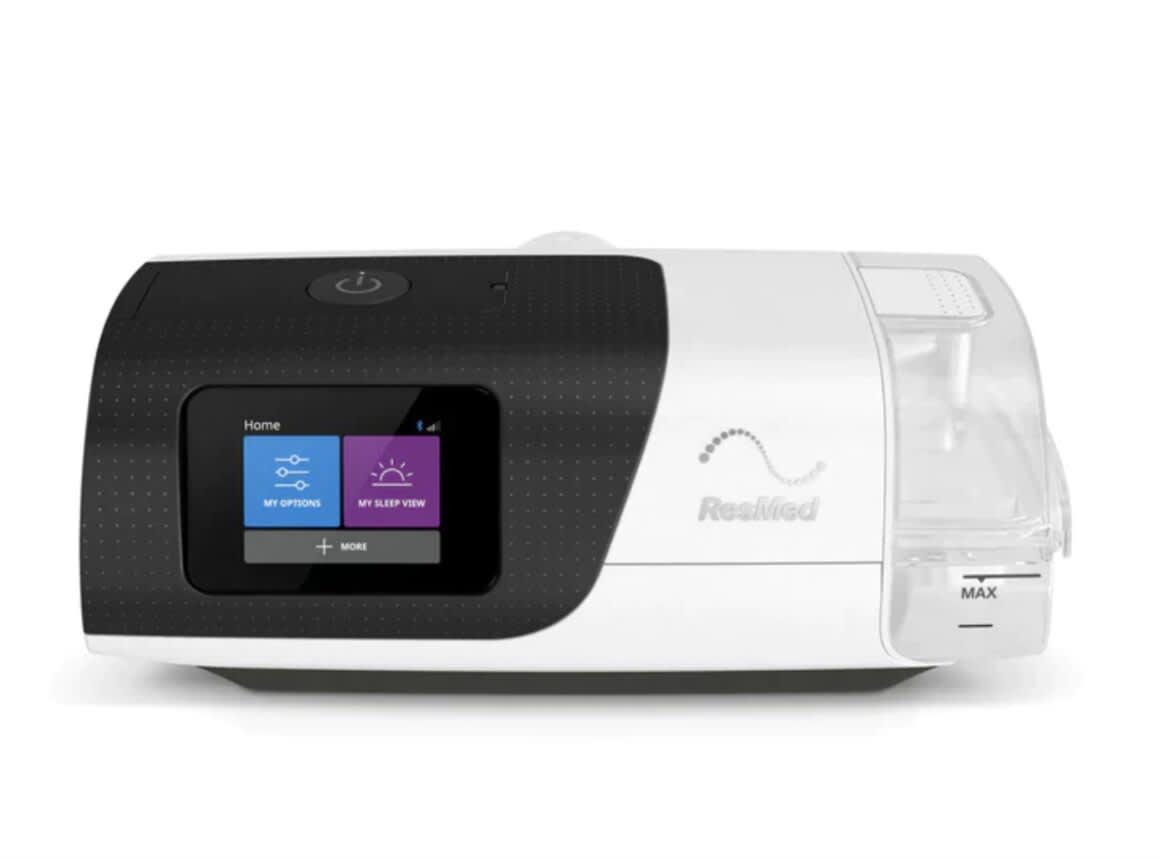
The best CPAP machine for any given sleeper largely depends on factors like severity of OSA symptoms, pressure needs, and personal preferences. That said, the AutoSense 11 from ResMed should check a lot of boxes for the majority of today’s CPAP users.
Pros & Cons
Pros
- AutoSet mode automatically adjusts pressure levels based on your breathing patterns
- Built-in humidifier may improve therapy comfort
- Compatible with ClimateLineAir heated tubing
Cons
- More expensive than basic fixed-pressure CPAP devices
- Slightly noisier than some competing models
Full Details
Best CPAP Machine for New CPAP Users
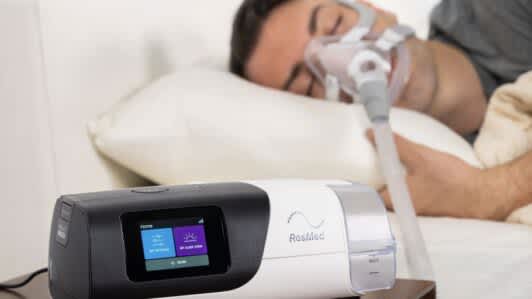
If you’re new to CPAP therapy, the ResMed AirSense 11 AutoSet Basics Bundle includes all the essential components you’ll need to get started.
Pros & Cons
Pros
- Full bundle includes CPAP machine, mask, and replacement filters
- Two mask styles and three cushion sizes
- AirSense 11 automatically adjusts pressure based on your breathing patterns
Cons
- May not be necessary for those who only need a CPAP machine
- Full-face mask isn’t ideal for people seeking a lightweight frame
Full Details
Best Value CPAP Machine
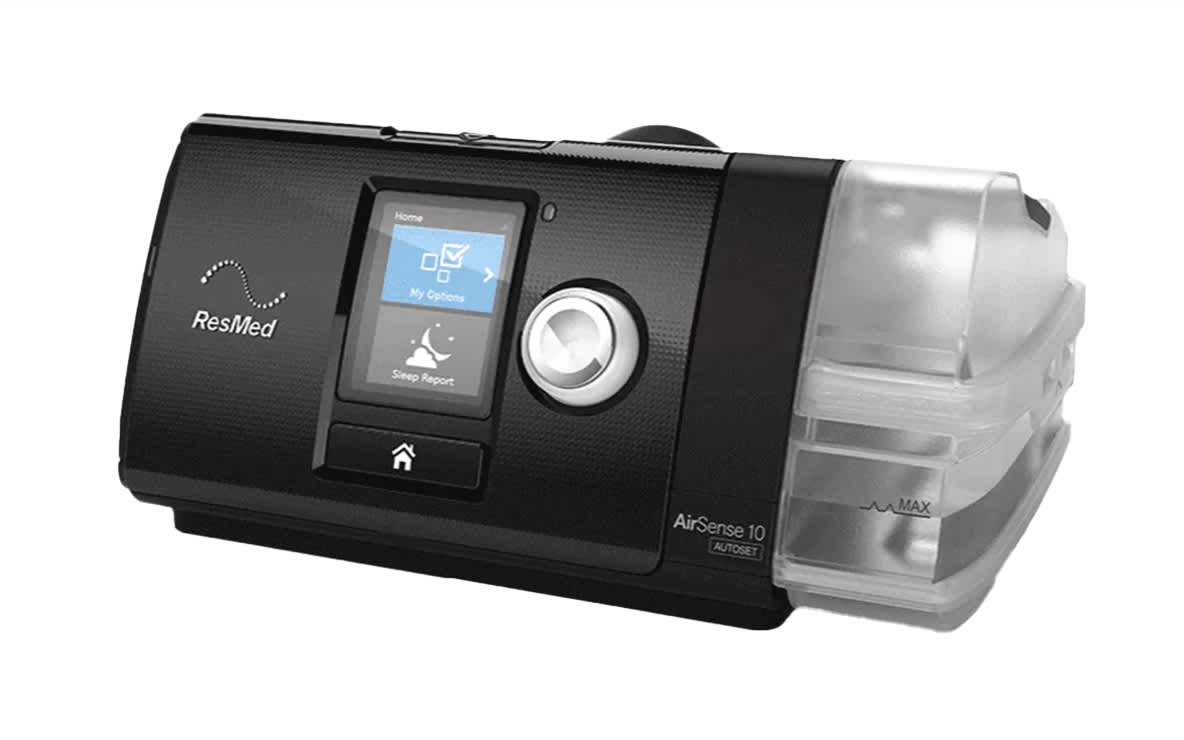
Weighing less than 3 pounds, the ResMed AirSense 10 is small and lightweight but is among the most feature-packed units on the market. An approachable price-point of under $1,000 also makes the device suitable for shoppers with tight budgets or limited insurance coverage.
Pros & Cons
Pros
- Auto-titrating function adjusts pressure automatically
- Extended ramp and pressure relief settings
- More affordable than the AirSense 11
Cons
- Not needed for people who don’t mind standard CPAP machines
- Sleep disruptions may occur during pressure adjustments
Full Details
Best BiPAP Machine
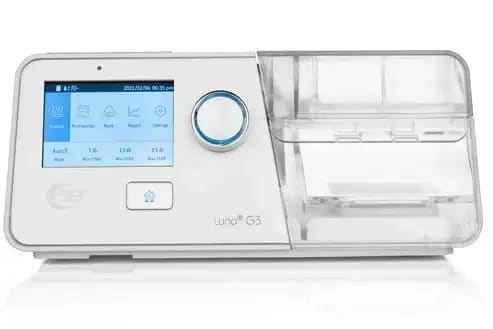
The Luna G3 BiLevel 25A CPAP Machine comes with multiple features to improve your comfort and sleep during CPAP therapy. The unit contains a built-in humidifier and integrated heated tubing to prevent condensation. A preheat setting warms the humidifier chamber while you get ready for bed, while an auto ramp feature keeps the pressure low until you fall asleep.
Pros & Cons
Pros
- Built-in heated humidifier includes a preheat setting
- Four therapy modes
- BiPAP modes deliver different pressures during inhalation and exhalation
Cons
- High price-point
- No spontaneous-timed mode
Full Details
Best Travel CPAP Machine
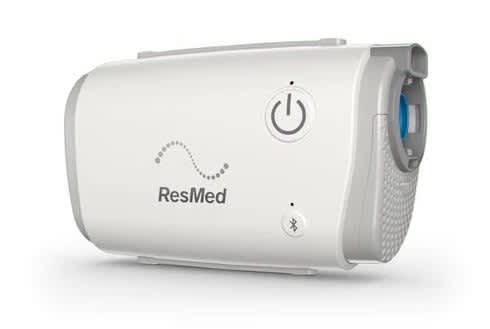
The ResMed AirMini AutoSet Travel CPAP Machine offers an impressively small design without sacrificing functionality. This unit is small enough to fit in almost any backpack or purse but is powerful enough for higher pressure settings up to 20 centimeters of water pressure (cm H2O).
Pros & Cons
Pros
- Compact design weighs less than a pound
- Offers advanced functions such as an APAP mode and ramp settings
- Smartphone app lets you easily view your sleep data
Cons
- Portable battery not included
- Only works with certain ResMed masks unless you purchase an adapter
Full Details
Best CPAP Machine Alternative
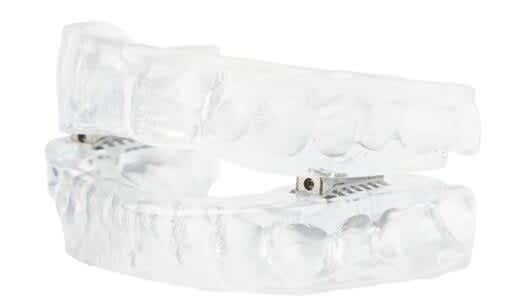
CPAP is widely considered the most effective treatment for obstructive sleep apnea, but this type of therapy isn’t for everyone. Light sleepers easily awakened by noise, people with breathing problems, and those with mild OSA symptoms can benefit from an alternative form of treatment, such as an anti-snoring mouthpiece, and the American Sleep Dentistry Oral Appliance is one of the finest such mouthpieces on the market today.
Pros & Cons
Pros
- Customizable MAD appliance pushes the jaw forward and increases airflow
- Potentially more comfortable and sleep-inducing than traditional CPAP
- Device can be cleaned quickly and easily
Cons
- Long-term use can lead to jaw pain
- Sticker price is well above average for an MAD
Full Details
How We Make Our Picks
Our team of sleep experts includes sleep doctors, medical professionals, product testers, and researchers. We use our decades of experience to determine which CPAP machines are best and worth your consideration. Our recommendations draw on our knowledge, real customer reviews, and manufacturers’ reputations. We also stay on top of product recalls to ensure that we only recommend high-quality, effective CPAP machines.
How Does CPAP Therapy Work?
CPAP therapy involves using a bedside machine that provides a steady stream of air to prevent breathing interruptions while you sleep. It’s particularly effective at treating obstructive sleep apnea (OSA), the most common type of sleep apnea. In OSA, tissues in the throat narrow or block the upper airway during sleep, repeatedly interfering with normal breathing.
A CPAP machine works by filtering and pressurizing air, which is then delivered to your airway through a hose and a mask. The force of the pressurized air splints the airway open to facilitate uninterrupted breathing.
What to Consider When Buying a CPAP Machine
While buying a CPAP machine requires a prescription, there are still a wide range of brands and models to choose from. Different CPAP machines offer unique combinations of features, so it’s important to consider what fits best with your lifestyle and needs.
Pressure Range
Air pressure delivered by a CPAP machine is measured in centimeters of water pressure (cm H2O), and most models can provide pressure levels up to 20 cm H2O. Some CPAP machines also come with a ramp feature to help you fall asleep. Ramp settings start therapy at a lower pressure before slowly increasing it to the prescribed level over a set period.
Noise Level
The average sound level of a CPAP machine is around 30 decibels, which is about as loud as a soft whisper. Some models have special features or designs that reduce the sound level even further. Quieter models may be particularly helpful for anyone who needs a quiet environment to fall asleep.
Smart Features
Many CPAP machines include smart features to make them more comfortable and easy to use.
- LCD Displays: Some models have advanced displays that make it easier to navigate menu options, especially in the dark.
- Data Tracking: All modern CPAP machines track some data to help your doctor evaluate the treatment’s effectiveness, but some models collect more data points and track your sleep patterns.
- Cellular Connectivity: CPAP machines may collect your data on a memory card stored in the device, sync your data over cellular service to a cloud-based platform, or allow for a combination of both.
- Preheat Function: Humidifiers are a common feature of CPAP machines that add moisture to air as it’s delivered through the hose and mask. Some CPAP devices have a preheat function that warms up the humidifier water before use.
Features like data tracking, easy-to-read displays, and pre-heating might seem like overkill, but they can improve daily use and CPAP adherence.
What Are the Different Types of PAP Machines?
CPAP is one type of positive airway pressure (PAP) machine, though alternative devices are available with slightly different functions.
| PAP Machine | Description |
| Continuous positive airway pressure (CPAP) | A standard CPAP machine offers a consistent level of air pressure throughout the night. Following a sleep apnea diagnosis, the appropriate air pressure level is typically determined during a titration study at a sleep clinic. |
| Bilevel positive airway pressure (BiPAP) | BiPAP machines switch between two levels of air pressure: a higher level when you inhale and a lower pressure when you exhale. This type of machine may be prescribed if you have difficulty tolerating a fixed-pressure CPAP device or if you need treatment for another type of breathing condition, such as central sleep apnea. |
| Automatic positive airway pressure (APAP) | APAP machines use sensors and algorithms to automatically adjust the air pressure level based on your breathing patterns. Rather than a machine itself, APAP is a technology that is available in certain CPAP and BiPAP devices. However, the term APAP machine is typically reserved for a CPAP device that includes an auto-adjusting feature. |
| Travel CPAP machines | Designed for convenience and portability, travel CPAP machines are compact and lightweight. While functioning similarly to a standard CPAP machine, their small size helps you stay consistent with therapy even when you’re away from home. Many travel CPAP machines also have APAP modes. |
CPAP Accessories
While a mask, tubing, and an air filter are essential components of CPAP therapy, other accessories can enhance your comfort and the effectiveness of treatment.
| Accessory | Description |
| Mask | A CPAP mask delivers air to your nose or your nose and mouth. A mask needs to feel comfortable yet maintain a strong seal against your face to prevent leaks. Headgear keeps the mask in place. |
| Tubing | CPAP tubing connects the machine to your mask. Hoses come in many different lengths and styles. Some models offer special features like in-line heating. |
| Filters | Filters clean the air that is pressurized and delivered by a CPAP machine. FIlters may be washable or disposable and should be replaced according to the manufacturer’s instructions. |
| Battery | CPAP batteries aren’t essential, but they can ensure consistent performance during travel or power outages. Some batteries are specific to one CPAP device, while others can be used with various models. |
| CPAP pillow | CPAP pillows are designed to help you sleep while using a CPAP machine. These pillows have special shapes, cutouts, or other features that make it more comfortable to sleep while wearing a mask and headgear. |
Compatibility is a major factor to think about when you’re shopping for a new CPAP. Make sure a machine will work with the mask and tubing you’ve got in mind before you commit to a purchase.
Pricing, Insurance, and Where to Buy a CPAP Machine
CPAP machines typically range from $500 to over $1,000, influenced by factors like the brand, features, and any accessories included with your purchase. A prescription from your doctor is required to buy a CPAP machine, as it’s considered a Class II medical device regulated by the Food and Drug Administration.
Most insurance plans, including Medicare and Medicaid, cover some CPAP costs under certain conditions, including whether you demonstrate that you use your CPAP machine consistently. Even when covered by insurance, there may still be out-of-pocket costs like a copay or deductible.
Once you have a prescription, a CPAP machine can be purchased online, in medical supply stores, and sometimes directly through doctors and sleep specialists.
Discover More CPAP Solutions
If you’re looking for more product recommendations and CPAP tips, check out our expert guides that we’ve broken down into convenient categories.
Best CPAP Products by Type
How We Make Our Picks
Our team has a strong knowledge base when it comes to the fundamentals of sleep apnea and CPAP products. We also know it can be difficult for consumers to wade through all the CPAP machines on the market.
To make it easier for you to find a CPAP machine that meets your needs, we’ve researched dozens of models. After looking at the most trusted brands and comparing features, availability, and customer reviews, we selected the best CPAP machines across a range of categories.
Frequently Asked Questions
While CPAP machines are generally safe and effective, some users experience mild discomfort, like dryness, nasal congestion, or irritated skin. These issues are often manageable with adjustments to the machine or accessories.
Always follow the manufacturer’s recommendations when cleaning CPAP accessories. For most masks, hoses, and humidifier water chambers, regular cleaning with warm water and mild soap is recommended. For deeper cleaning of the humidifier tank, a solution of warm water and white vinegar can be effective. Be sure to fully rinse and air dry all components before using your machine again.
A prescription is required to purchase a CPAP machine, as they are classified as Class II medical devices by the FDA.
You can purchase a CPAP machine online. Many people opt for online shopping because you can easily compare the prices and features of different models. Online shopping also allows you to read customer reviews and find helpful online resources.
